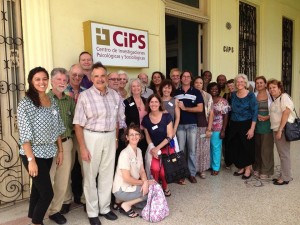The number of international students enrolled in U.S. universities declined since the 2016/2017 academic year (Institute of International Education; IIE, 2019). While data for the years 2019/2020 are yet to be released, there is no doubt that trend will continue to decline given the abrasive conditions that foreign students continue to experience in the U.S. With the addition of a pandemic, systemic racism and police brutality, and specific policies differentially targeting immigrants and immigration, international students’ concerns are currently exacerbated by substantial threats to the continuation of their academic journeys and ambitions.
International students in psychology have been uniquely impacted by the institutional changes in response to the syndemic. Some of the direct effects to this population span across the areas of their immigration status, academic responsibilities, career opportunities, financial stability, safety, and mental health and wellbeing. Often these concerns are overlooked or not prioritized.
International Status: The stringent immigration and visa regulations applicable to international students in psychology have compelled them to limit their experiences and access to opportunities. The current syndemic in the U.S. only exacerbates this system. Students are unable to renew their existing visas and/or obtain authorizations for further training, disrupting the sensitive timelines for foreign students and professionals to commence and/or complete training; it also interferes with their ability to remain within status thereby creating extreme worry about lawful presence and work in the U.S.
Academic Responsibilities: Given the unsettling current presentation of COVID- 19 in the U.S., home governments have requested that certain populations return home. While programs have offered online instruction to these students, the significant time differences between the U.S. and students’ home countries have made learning an arduous task and minimally satisfying. Additionally, the inability to be physically present interferes with international students accruing practicum hours to secure externships and internships. As such, international students may be severely hindered in their practical experiences and hour accumulation, ultimately being disfavored when applying for internships and externships.
Career Opportunities: Students in various stages of their program encounter unique situations posed by the syndemic. Those nearing the conclusion of their program (often in the phase of dissertation and/or internship completion) are having to make critical yet unfavorable choices about the future of their career. After having invested 5-6 years of their life in the U.S., often away from family and friends, these students are absolutely hopeless about securing further training positions in the U.S. The current hiring freeze has resulted in international students in psychology returning to their home countries in seek of job opportunities. Further, given the status of psychology in their countries and the students’ subspeciality, these positions may or may not be related to their educational background.
Financial Stability: The budgetary cuts to university grants resulting from the syndemic have directly impacted international students. As a population who by default experiences an array of severe restrictions to the type of work, hours of work, and types of funding they can receive before the syndemic, the budget cuts have threated their financial stability the most. Students are having to rely on family and personal funding to fuel the continuation of their graduate education and livelihoods. These personal funds have to amount to tens and thousands of dollars to meet the unjust semester course requirement and outrageous out-of-state tuition expenses.
Mental health and wellbeing: There is, by default, a natural burden to the one’s mental health and wellbeing that comes with being a foreign student. Having to leave family and friends and start an educational journey while also attempting to maintain academic tasks, obtain financial stability, adjust to the cultural differences, navigate the international paperwork and immigration updates, and find social support are just a few. Unfortunately, the syndemic only worsened the circumstances for this population, where students are unable to travel to visit their families or fear the return to the U.S. upon leaving. Additional stressors are related to the lack of support and direction international students are receiving from their programs, departments, and international offices on campus, often leaving students to advocate for themselves. Furthermore, the same time zone and physical presence restrictions that impact practicum work restrict the ability of international students to access campus resources, even when they are available. These times can be truly isolating.
International students are truly resilient, persistent, and fearless individuals (Lee, 2013) and under the toughest circumstances, they are also helpful to one another. However, this population is needing and deserving of more systemic and institutional regard to navigate these new regulations, now more than ever. By providing limited to no support or advocacy, governing bodies, programs, departments, and intuitions are neglecting and overlooking a population that significantly contributes to a portion of the cultural and ethnic diversity in the field of psychology.
References:
Institute of International Education. (2019). Open Doors 2019 infographics. Retrieved from http://opendoorsiie.wpengine.com/wp-content/uploads/2020/06/Open-Doors-Graphics-2019.pdf
Lee, K. C. (2013) Training and educating international students on professional psychology: What graduate programs should know. Training and Education in Professional Psychology, 7(1), 61-69. https://doi.org/10.1037/a0031186

 Psychology graduate students face unique struggles compared to graduate students in other fields, as we are expected to be self-reflective, engage in self-care, and also examine our ability to work with others while making sure that we dedicate most of our time to work. The balance often becomes a very tricky process to negotiate. International students in graduate psychology programs experience additional barriers in comparison to their domestic counterparts, as they have to navigate local and national policies, immigration requirements, paperwork, and experiences of discrimination, on top of academic requirements. Further, it is not unusual for international students to feel isolated, especially in smaller programs where the international student community is scarce. In addition to cultural adjustment and a possible language barrier, international students also have to plan a timeline carefully to ensure they are up to date on immigration documentation. One of the most stressful experiences for international students in clinical, counseling, and school psychology programs is applying for the clinical internship. International students face unique challenges in this process, including a reduced number of sites that accept individuals without US citizenship or permanent residency.
Psychology graduate students face unique struggles compared to graduate students in other fields, as we are expected to be self-reflective, engage in self-care, and also examine our ability to work with others while making sure that we dedicate most of our time to work. The balance often becomes a very tricky process to negotiate. International students in graduate psychology programs experience additional barriers in comparison to their domestic counterparts, as they have to navigate local and national policies, immigration requirements, paperwork, and experiences of discrimination, on top of academic requirements. Further, it is not unusual for international students to feel isolated, especially in smaller programs where the international student community is scarce. In addition to cultural adjustment and a possible language barrier, international students also have to plan a timeline carefully to ensure they are up to date on immigration documentation. One of the most stressful experiences for international students in clinical, counseling, and school psychology programs is applying for the clinical internship. International students face unique challenges in this process, including a reduced number of sites that accept individuals without US citizenship or permanent residency. – old Fords and Plymouth convertibles, no advertisements for any goods and services except for those promoting public health and supporting ‘la revolucion’, and crumbling architecture representing the remains of both Soviet and colonial influence.
– old Fords and Plymouth convertibles, no advertisements for any goods and services except for those promoting public health and supporting ‘la revolucion’, and crumbling architecture representing the remains of both Soviet and colonial influence.